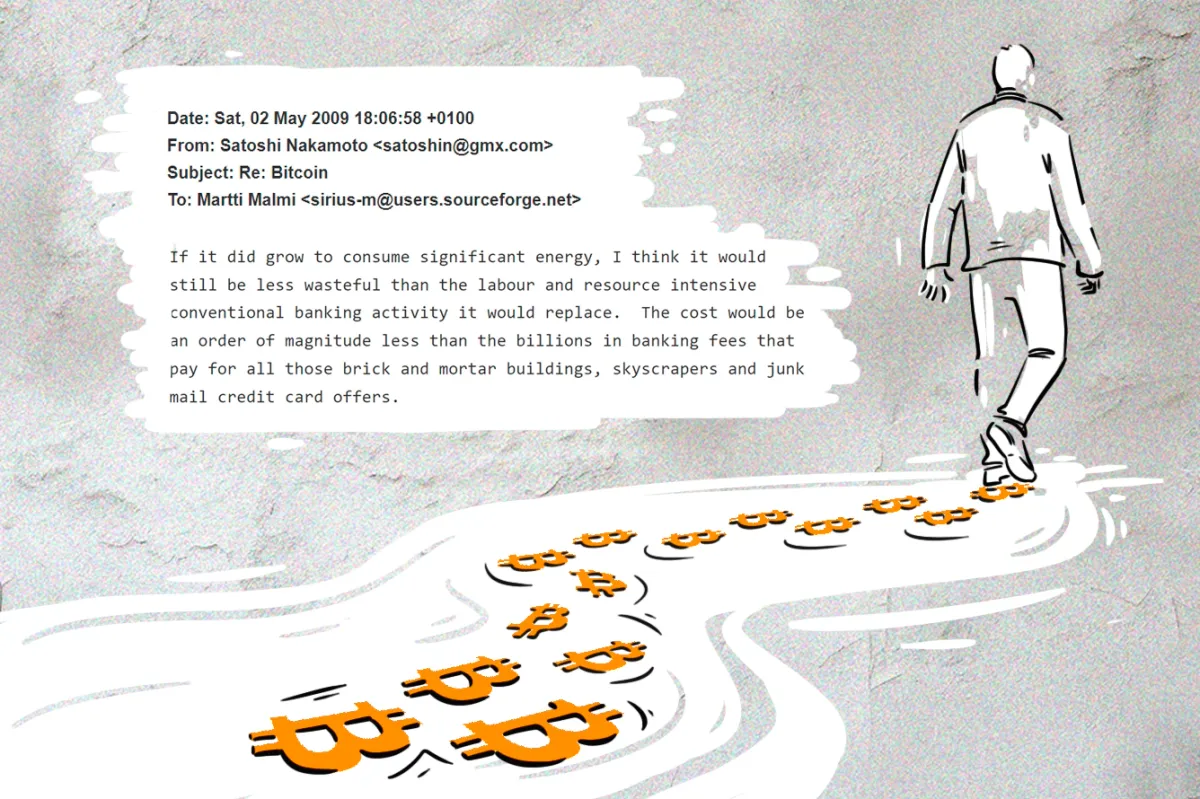
On Friday, private correspondence between Satoshi Nakamoto and both Martti Malmi and Adam Back was made public during a court session of the Crypto Open Patent Alliance (COPA) case against Craig Wright, which is trying to disprove his claim to be the pseudonymous creator of Bitcoin.
The conversation with Adam Back, the creator of Hashcash, was professional and straight to the point - Satoshi wanted to reference Back's work correctly in the Bitcoin whitepaper. Back also presented evidence from 2009, in which he explained B-Money to Nakamoto, contradicting Wright's assertion that the 1998 digital currency proposal had influenced Bitcoin.
However, the emails exchanged between Nakamoto and Malmi, also known as "Sirius", are the most revealing. The developer was one of the first to join the Bitcoin creator in his quest to build a global trustless payment network, and the two worked together for over two years. The released correspondence amounts to 120 pages.
Primarily technical in their content, the emails discuss coding tasks, the development of the network, upgrades, troubleshooting, ideas on how to grow adoption levels, and how to make Bitcoin more straightforward to understand.
Although for those hoping to discover the identity of the mastermind behind the first global trustless payment network, the pages offer little to go on.
About Satoshi Nakamoto, we learn only that he spent over 18 months developing the revolutionary project, was sure that the network would grow, used euro as his default currency, had impressive writing and coding skills, recognized and valued other people's efforts, and held a deep grudge against traditional finance.
But while his identity remains a mystery, his private correspondence shows that the developer cared profoundly about creating a new form of money that would protect those who used it from the tyranny of banks.
"Banks let anyone who has your name and account number drain your account, and you're not going to get it back from Nigeria."
Bitcoin was founded on the principles of financial agility and security and not as a tool to generate profit. Its goal was to protect ordinary people from the often cannibalistic strategies of the international banking and financial system, not to feed these systems.
"The root problem with conventional currency is all the trust that's required to make it work. The central bank must be trusted not to debase the currency, but the history of fiat currencies is full of breaches of that trust. Banks must be trusted to hold our money and transfer it electronically, but they lend it out in waves of credit bubbles with barely a fraction in reserve."
When discussing the costs associated with running the network, Satoshi admits that while energy consumption matters, the cost of running the current financial system is much higher.
"If it did grow to consume significant energy, I think it would still be less wasteful than the labour and resource intensive conventional banking activity it would replace. The cost would be an order of magnitude less than the billions in banking fees that pay for all those brick and mortar buildings, skyscrapers and junk mail credit card offers."
While today Bitcoin has become an investment asset in the eyes of most people, Satoshi disagreed with this description. "I'm uncomfortable with explicitly saying 'consider it an investment,'" he replied to Sirius.
Satoshi's distrust of power and centralized authorities led him to envision a new system guided by very different principles than the ones upheld by traditional finance.
As a bull market comes to fruition thanks to the adoption of cryptocurrency by the international financial system, arguably diluting the anti-establishment anarchic principles that guided the creation of Bitcoin, the newly-unveiled correspondence is a frank reminder that Bitcoin has already become something very different than Nakamoto intended.

